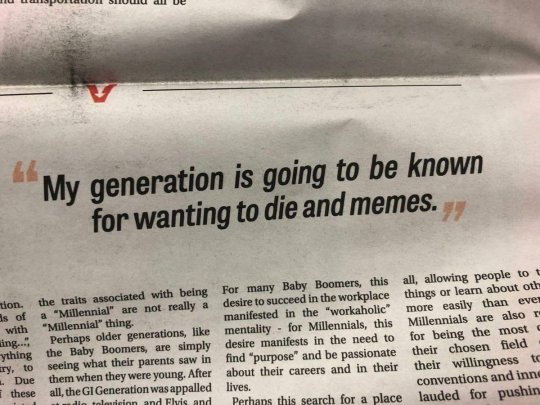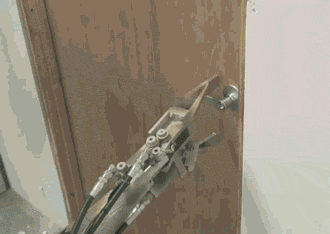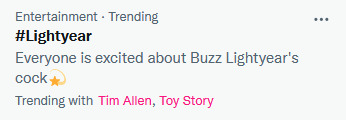Text
WEBSITES FOR WRITERS {masterpost}
E.A. Deverell - FREE worksheets (characters, world building, narrator, etc.) and paid courses;
Hiveword - Helps to research any topic to write about (has other resources, too);
BetaBooks - Share your draft with your beta reader (can be more than one), and see where they stopped reading, their comments, etc.;
Charlotte Dillon - Research links;
Writing realistic injuries - The title is pretty self-explanatory: while writing about an injury, take a look at this useful website;
One Stop for Writers - You guys... this website has literally everything we need: a) Description thesaurus collection, b) Character builder, c) Story maps, d) Scene maps & timelines, e) World building surveys, f) Worksheets, f) Tutorials, and much more! Although it has a paid plan ($90/year | $50/6 months | $9/month), you can still get a 2-week FREE trial;
One Stop for Writers Roadmap - It has many tips for you, divided into three different topics: a) How to plan a story, b) How to write a story, c) How to revise a story. The best thing about this? It's FREE!
Story Structure Database - The Story Structure Database is an archive of books and movies, recording all their major plot points;
National Centre for Writing - FREE worksheets and writing courses. Has also paid courses;
Penguin Random House - Has some writing contests and great opportunities;
Crime Reads - Get inspired before writing a crime scene;
The Creative Academy for Writers - "Writers helping writers along every step of the path to publication." It's FREE and has ZOOM writing rooms;
Reedsy - "A trusted place to learn how to successfully publish your book" It has many tips, and tools (generators), contests, prompts lists, etc. FREE;
QueryTracker - Find agents for your books (personally, I've never used this before, but I thought I should feature it here);
Pacemaker - Track your goals (example: Write 50K words - then, everytime you write, you track the number of the words, and it will make a graphic for you with your progress). It's FREE but has a paid plan;
Save the Cat! - The blog of the most known storytelling method. You can find posts, sheets, a software (student discount - 70%), and other things;
I hope this is helpful for you!
(Also, check my blog if you want to!)
73K notes
·
View notes
Photo
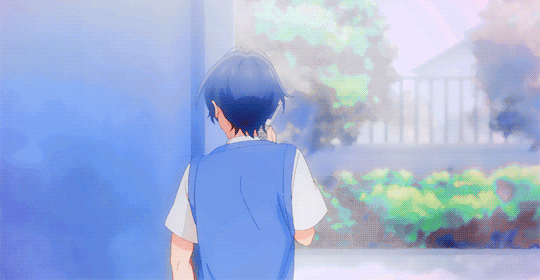
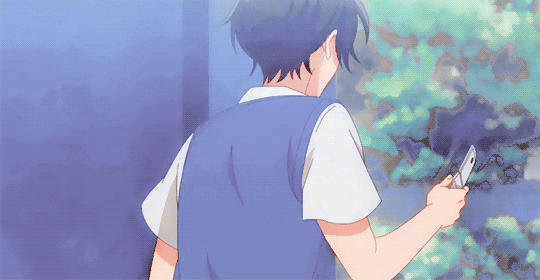

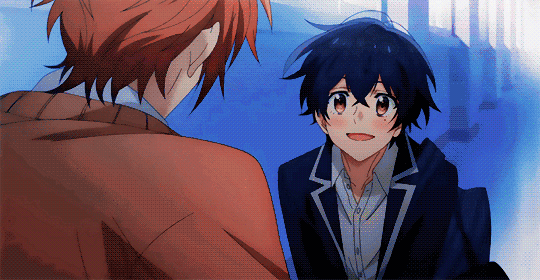


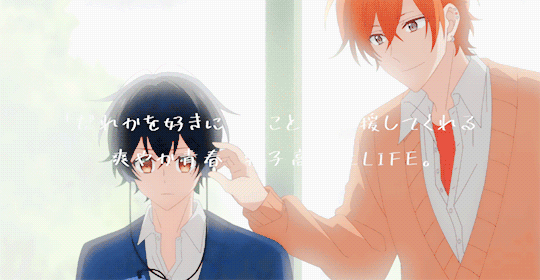
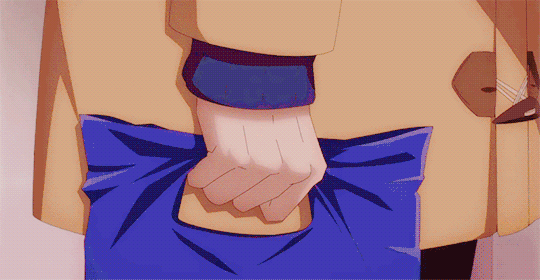
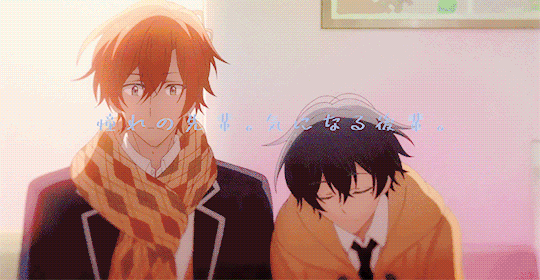
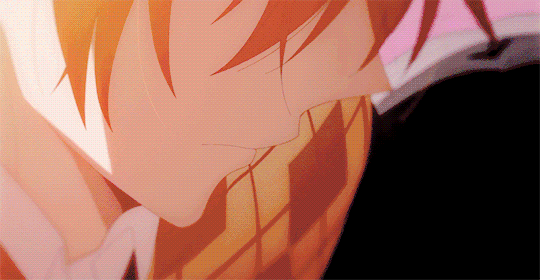
Sasaki to Miyano ✧ Official Trailer ~ (January 9) ❀
1K notes
·
View notes
Text
small cultural & Colombia/Latin related details from Encanto 🇨🇴
the flowers on Isabela’s dress and in her hair - cattleya trianae orchids (may lilies), national flowers of Colombia
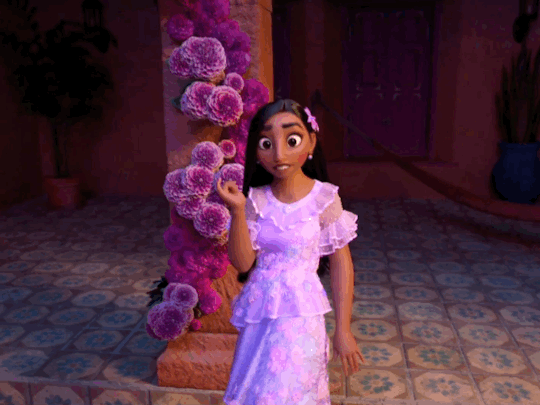
Camilo snapping his fingers when he is excited
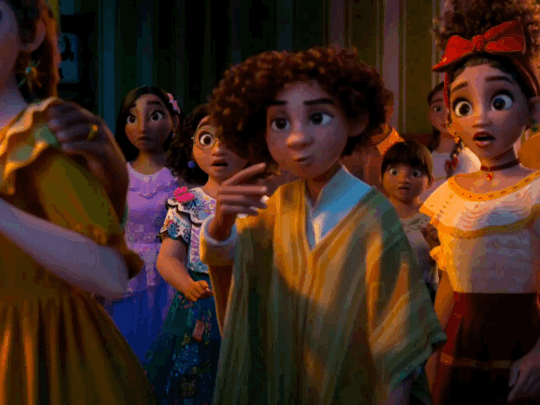
Mirabel using her lips to point
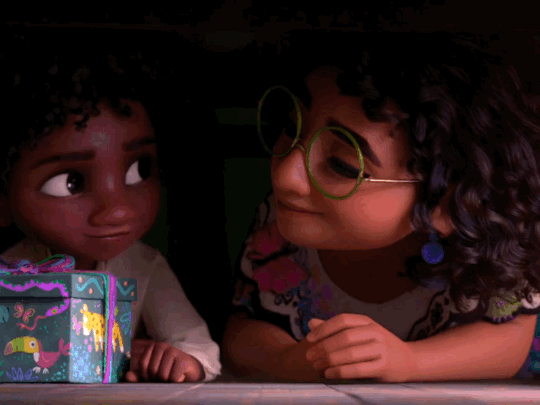
flowered balconies (like in Cartagena)

ruanas (ponchos) that Bruno and Camilo wore
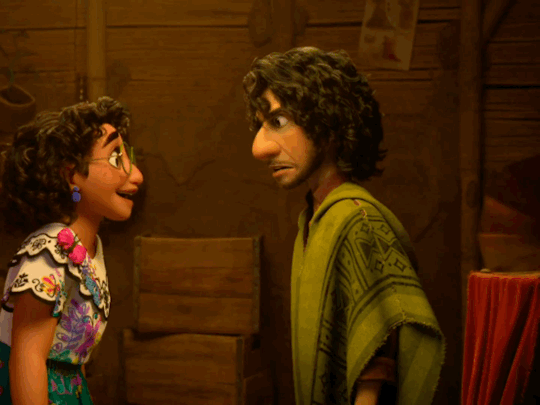
Dolores’ “squeaks”
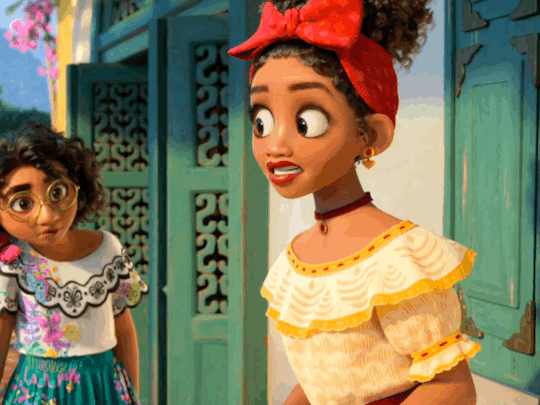
inviting the whole town/neighbourhood to a party
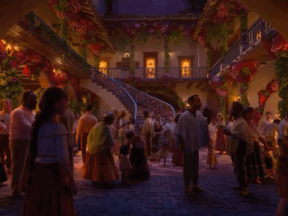
sombrero vueltiao - traditional Colombian hat
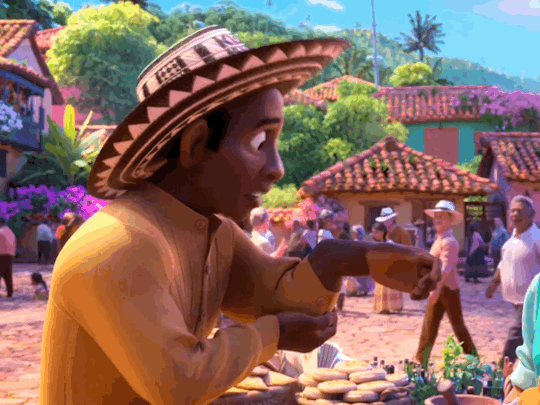
Isabela being covered in the colors of Colombian flag (🇨🇴) during her song
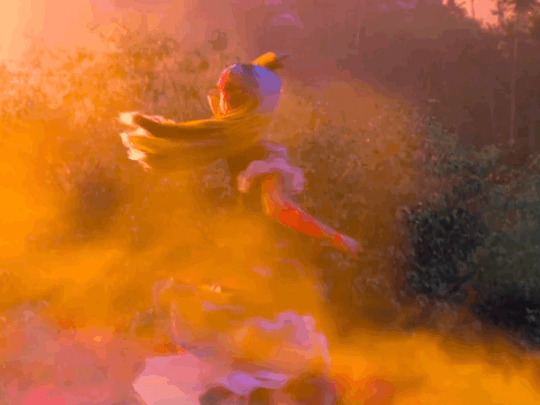
and many many more!
(this is for all the people who still say Encanto is not about Colombians ; sorry about the quality of the gifs)
84K notes
·
View notes
Text
100 Mostly Small But Expressive Interjections
by Mark Nichol
They often seem disreputable, like sullen idlers loitering in a public thoroughfare, but they actually do a lot of hard work and are usually persnickety about the tasks to which they are put. They are interjections — one class of them, anyway: those lacking etymological origins but packed with meaning.
But how do you know how to distinguish similar ones — or spell them, for that matter? Here’s an incomplete inventory of interjections (not including variations of actual words such as yeah for yes or onomatopoeic echoes of externally produced sounds like boom):
Ack communicates disgust or dismissal.
Ah can denote positive emotions like relief or delight (generally, pronounced with a long a).
Aha signals triumph or surprise, or perhaps derision.
Ahem is employed to gain attention.
Argh, often drawn out with additional h’s, is all about frustration.
Aw can be dismissive or indicative of disappointment, or, when drawn out, expressive of sympathy or adoration.
Aye denotes agreement.
Bah is dismissive.
Blah communicates boredom or disappointment.
Blech (or bleah or bleh) implies nausea.
Boo is an exclamation to provoke fright.
Boo-hoo is imitative of crying and is derisive.
Boo-ya (with several spelling variants) is a cry of triumph.
Bwah-hah-hah (variously spelled, including mwah-hah-hah) facetiously mimics the stereotypical archvillain’s triumphant laugh.
D’oh is the spelling for the muttering accompanying Homer Simpson’s trademark head-slapping self-abuse.
Duh derides someone who seems dense.
Eek indicates an unpleasant surprise.
Eh, with a question mark, is a request for repetition or confirmation of what was just said; without, it is dismissive.
Er (sometimes erm) plays for time.
Ew denotes disgust, intensified by the addition of one or more e’s and/or w’s.
Feh (and its cousin meh) is an indication of feeling underwhelmed or disappointed.
Gak is an expression of disgust or distaste.
Ha expresses joy or surprise, or perhaps triumph.
Ha-ha (with possible redoubling) communicates laughter or derision.
Hamana-hamana, variously spelled, and duplicated as needed, implies speechless embarrassment.
Hardy-har-har, or har-har repeated as needed, communicates mock amusement.
Hee-hee is a mischievous laugh, while its variants heh and heh-heh (and so on) can have a more derisive connotation.
Hey can express surprise or exultation, or can be used to request repetition or call for attention.
Hist signals the desire for silence.
Hm, extended as needed, suggests curiosity, confusion, consternation, or skepticism.
Hmph (also hrmph or humph) indicates displeasure or indignation.
Ho-ho is expressive of mirth, or (along with its variant oh-ho) can indicate triumph of discovery.
Ho-hum signals indifference or boredom.
Hubba-hubba is the vocal equivalent of a leer.
Huh (or hunh) is a sign of disbelief, confusion, or surprise, or, with a question mark, is a request for repetition.
Hup, from the sound-off a military cadence chant, signals beginning an exerting task.
Hurrah (also hoorah, hooray, and hurray, and even huzzah) is an exclamation of triumph or happiness.
Ick signals disgust.
Lah-de-dah denotes nonchalance or dismissal, or derision about pretension.
Mm-hmm, variously spelled, is an affirmative or corroborating response.
Mmm, extended as needed, conveys palatable or palpable pleasure.
Mwah is suggestive of a kiss, often implying unctuous or exaggerated affection.
Neener-neener, often uttered in a series of three repetitions, is a taunt.
Now (often repeated “Now, now”) is uttered as an admonition.
Oh is among the most versatile of interjections. Use it to indicate comprehension or acknowledgment (or, with a question mark, a request for verification), to preface direct address (“Oh, sir!”), as a sign of approximation or example (“Oh, about three days”), or to express emotion or serves as a response to a pain or pleasure. (Ooh is a variant useful for the last two purposes.)
Oh-oh (or alternatives in which oh is followed by various words) is a warning response to something that will have negative repercussions.
Olé, with an accent mark over the e, is borrowed from Spanish and is a vocal flourish to celebrate a deft or adroit maneuver.
Ooh, with o’s repeated as needed, conveys interest or admiration, or, alternatively, disdain.
Ooh-la-la is a response to an attempt to impress or gently mocks pretension or finery.
Oops (and the jocular diminutive variation oopsie or oopsy and the variant whoops) calls attention to an error or fault.
Ouch (or ow, extended as needed) signals pain or is a response to a harsh word or action.
Oy, part of Yiddish expressions such as oy gevalt (equivalent to “Uh-oh”), is a lament of frustration, concern, or self-pity.
Pff, extended as needed, expresses disappointment, disdain, or annoyance.
Pfft, or phfft, communicates abrupt ending or departure or is a sardonic dismissal akin to pff.
Phew, or pew, communicates disgust, fatigue, or relief. (Phooey, also spelled pfui, is a signal for disgust, too, and can denote dismissal as well. PU and P.U. are also variants.)
Poof is imitative of a sudden disappearance, as if by magic.
Pooh is a contemptuous exclamation.
Pshaw denotes disbelief, disapproval, or irritation or, alternatively, communicates facetious self-consciousness.
Psst calls for quiet.
Rah, perhaps repeated, signals triumph.
Shh (extended as necessary) is an imperative for silence.
Sis boom bah is an outdated encouraging cry, most likely to be used mockingly now.
Tchah communicates annoyance.
Tsk-tsk and its even snootier variant tut-tut are condemnations or scoldings; the related sound tch is the teeth-and-tongue click of disapproval.
Ugh is an exclamation of disgust.
Uh is an expression of skepticism or a delaying tactic.
Uh-huh indicates affirmation or agreement.
Uh-oh signals concern or dismay.
Uh-uh is the sound of negation or refusal.
Um is a placeholder for a pause but also denotes skepticism.
Va-va-voom is an old-fashioned exclamation denoting admiration of physical attractiveness.
Whee is an exclamation of excitement or delight.
Whew is a variant of phew but can also express amazement.
Whoa is a call to halt or an exclamation of surprise or relief.
Whoop-de-doo and its many variants convey mocking reaction to something meant to impress.
Woo and woo-hoo (and variations like yahoo, yee-haw, and yippee) indicate excitement. (Woot, also spelled w00t among an online in-crowd, is a probably ephemeral variant.)
Wow expresses surprise.
Yay is a congratulatory exclamation. (Not to be confused with yeah, a variant of yes.)
Yikes is an expression of fear or concern, often used facetiously.
Yo-ho-ho is the traditional pirates’ refrain.
Yoo-hoo attracts attention.
Yow, or yowza, is an exclamation of surprise or conveys being impressed.
Yuck (also spelled yech or yecch) signals disgust. (Not to be confused with yuk, a laugh.)
Yum, or yummy, is a response to the taste of something delicious and, by extension, the sight of an attractive person.
Zoinks is an expression of surprise or amazement popularized by the cartoon character Shaggy, of Scooby Doo fame.
Zowie, often in combination following wowie, a variant of wow, expresses admiration or astonishment.
7K notes
·
View notes
Text

but just imagine if Takaba says a joke like what the tweet says and Gojo just pops out behind Kenjaku like

830 notes
·
View notes
Text
realizing u have to wake up again tomorrow and the next day and the day after that:

185K notes
·
View notes
Text
Alberto : I quit!
Massimo : you can’t quit being my son
3K notes
·
View notes
Text
“Let’s stop playing games with people feelings, and also stop thinking that you are fooling him or her. They do know what you are doing. They just choose not to say anything, because they know they would deny and put there guard up. Then say how could you ask something like that. Don’t lead people on or play games with people’s heart. If you don’t want them, let them go. Keep it real at all times.”
— Jazz Zo Marcellus
102 notes
·
View notes
Text
“I like people who have a sense of individuality. I love expression and anything awkward and imperfect, because that’s natural and that’s real.”
— Marc Jacobs
421 notes
·
View notes
